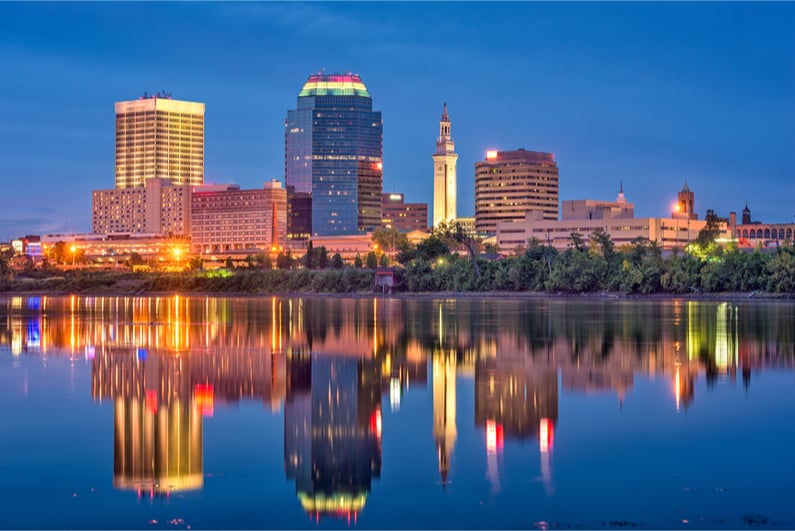It took seven years after legalization, but the first resort casino in Massachusetts finally opened on August 24. The MGM Springfield brought in revenues of about $9.5m (£7.2m) in its first week of business.
Background to the casino opening
Horse race betting has been legal in Massachusetts since the 1930s, and a state lottery was established in 1971, but the state has made progress toward casino legalization only in the last couple of decades.
Two Indian tribes have been trying for many years to open their own gambling operations in the state but have received staunch opposition.
In 2011, commercial casinos were legalized with the passage of the Expanded Gaming Act. This act allowed three licenses for casino resorts.
The Encore Boston Harbor Casino received one of these licenses and is still under construction. The MGM Springfield got one of the other licenses. The final license is still up in the air; the Mashpee Wampanoag tribe is taking legal action to obtain the third license.
MGM Springfield opening
The first resort casino in Massachusetts opened on August 24. The project created 3,000 jobs will be a great catalyst for the local economy and a boost to the tourism industry. The state will also benefit from tax revenues.
The MGM Springfield took in nearly $1bn (£760m) in investment funds. It has been estimated that the government will receive tax revenues of about $100m (£76m) annually from this resort casino. The casino was built on re-purposed land that had been severely affected by a 2011 tornado, which was another plus for the local area.
The casino has more than 2,500 slot machines, over 100 gaming tables, and a large dedicated room for poker games. The resort includes a 250-room hotel, a bowling alley, a movie theater, retail outlets, and a multitude of restaurants.
Several notable acts performed during the opening weekend, including the Blue Man Group, the Dropkick Murphys, and Stevie Wonder.
Progress to date
The Gaming Commission, which is the Massachusetts regulator, reported that about $9.5m (£7.2m) in revenue was brought in during the first week of operations at the MGM Springfield.
The Commission’s monthly casino revenue report showed that $2.1m (£1.6m) of this sum came from table games such as roulette and blackjack. Slot machines attributed most of the revenue, with $7.3m (£5.5m).
About $2.4m (£1.8m) of this revenue will go to the state. There is a 25% tax on the resort’s gambling revenues. It is said to have been a very successful opening week, drawing over 150,000 visitors.
The 2011 Expanded Gaming Act allowed a slots parlor license along with the three casino resort licenses. The Plainridge Park Casino won this license and opened its doors in June 2015. It generated $700 daily from each of its slots during opening week, compared to $367 daily per slots at the MGM Springfield.
This is a metric that is widely used in the industry, with $300 per machine a day generally being considered a decent target. There had been expectations by many that this figure would be higher due to the hype surrounding the opening of the state’s first resort casino, but it was still respectable.
The MGM Springfield is significantly larger than Plainridge Park. It expects annual revenues of about $500m (£380m) by three years’ time. The most recent yearly revenue figures for Plainridge Park showed $15.4m (£11.7m) in revenues. The slots parlor pays a 49% tax on revenues.
Going forward
The MGM Springfield has faced some initial problems. The casino has struggled to deal with underage gamblers due to the vast number of visitors.
A major reason for this problem is the design of the casino: The retail shopping and restaurant areas provide easy access to the casino floor. The MGM is looking at potential solutions.
The casino is also taking steps to prevent problem gambling from taking hold in the city. One big step is to offer extensive training to casino employees to help them identify signs of problem gambling and how to deal with it.
